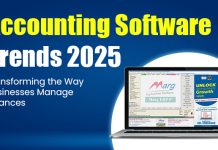Leasing is a common practice in business and finance, especially when it comes to acquiring assets like equipment, machinery, and vehicles. Accounting Standard 19 (AS 19) provides guidelines for accounting and reporting leases in a company’s financial statements. In this blog, we will discuss the key provisions of AS 19.
What is AS 19?
AS 19 is a standard issued by the Institute of Chartered Accountants of India (ICAI) that provides guidelines for accounting and reporting leases. The objective of AS 19 is to ensure that the financial statements of a company reflect the substance of its lease transactions, and not just the legal form.
Scope of AS 19
AS 19 applies to all types of leases, including finance leases and operating leases. A finance lease is a lease that transfers substantially all the risks and rewards incidental to ownership of an asset to the lessee, while an operating lease is a lease other than a finance lease.
Recognition of Lease
Under AS 19, a finance lease should be recognized as an asset and a liability in the balance sheet of the lessee at the inception of the lease. The asset should be recognized at an amount equal to the present value of the minimum lease payments, while the liability should be recognized at the same amount. The difference between the two represents the finance charge.
On the other hand, an operating lease should not be recognized as an asset or a liability in the balance sheet of the lessee. Instead, lease payments should be recognized as an expense in the profit and loss account over the lease term on a straight-line basis unless another systematic basis is more representative of the time pattern of the user’s benefit.
Disclosure Requirements
AS 19 also requires companies to disclose certain information in their financial statements regarding leases. This includes the nature of the lease arrangements, the amounts recognized in the financial statements, the future minimum lease payments, and any contingent rents.
Free Download Accounting Software
Conclusion
AS 19 is an important accounting standard that provides guidelines for accounting and reporting leases in a company’s financial statements. By following the provisions of AS 19, companies can ensure that their financial statements accurately reflect the substance of their lease transactions, and not just the legal form.
Frequently Asked Questions (FAQs)
Q. What is AS 19?
AS 19 is an accounting standard issued by the Institute of Chartered Accountants of India (ICAI) that provides guidelines for accounting and reporting leases in a company’s financial statements.
Q. What is the objective of AS 19?
The objective of AS 19 is to ensure that the financial statements of a company reflect the substance of its lease transactions, and not just the legal form.
Q. Which types of leases are covered under AS 19?
AS 19 covers all types of leases, including finance leases and operating leases.
Q. What is the recognition criteria for a finance lease?
Under AS 19, a finance lease should be recognized as an asset and a liability in the balance sheet of the lessee at the inception of the lease. The asset should be recognized at an amount equal to the present value of the minimum lease payments, while the liability should be recognized at the same amount.
Q. How should lease payments be recognized for an operating lease?
Lease payments for an operating lease should be recognized as an expense in the profit and loss account over the lease term on a straight-line basis unless another systematic basis is more representative of the time pattern of the user’s benefit.
Q. What are the disclosure requirements under AS 19?
AS 19 requires companies to disclose certain information in their financial statements regarding leases. This includes the nature of the lease arrangements, the amounts recognized in the financial statements, the future minimum lease payments, and any contingent rents.
Q. What are the benefits of following AS 19?
By following the provisions of AS 19, companies can ensure that their financial statements accurately reflect the substance of their lease transactions, and not just the legal form. This can improve the transparency and comparability of financial statements and provide users with more reliable information for decision-making.
Q. Are there any exceptions to AS 19?
AS 19 does not apply to leases of mineral rights, oil and gas rights, and similar non-regenerative resources. It also does not apply to licensing agreements for items such as motion picture films, video recordings, plays, manuscripts, patents, and copyrights.






